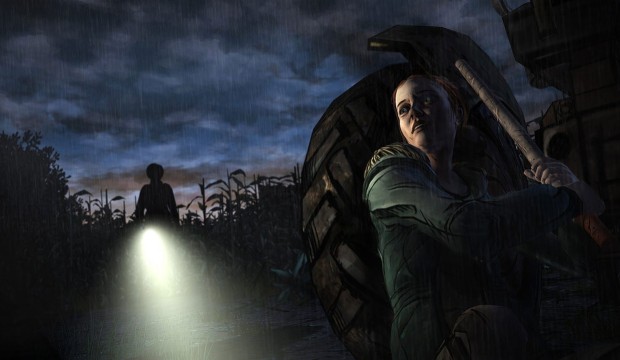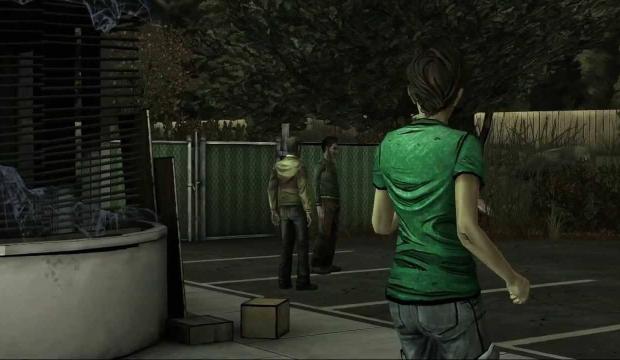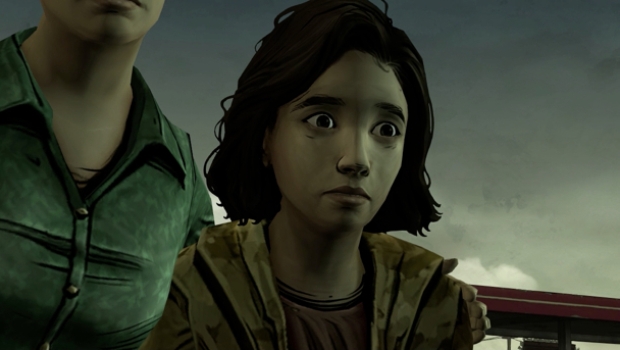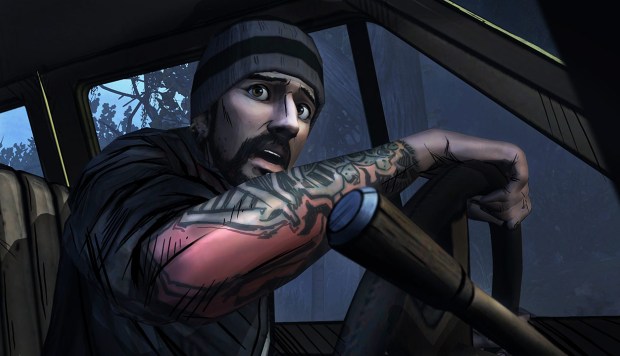The Walking Dead: 400 Days Review
It has been around eight months since the first season of The Walking Dead: The Game reached its climax – it was the end of an emotional rollercoaster that had spanned almost half a year, across five episodes. The game received multiple game of the year nominations, winning many (including our very own). It connected with players in a way that very few video games ever manage to do, by introducing characters that you could bond with and actually care about.
Where can Telltale Games go from there? They have managed one of the most impressive achievements in the field of video games in recent memory. As fans eagerly anticipate the already-confirmed second season, many might begin to think that surely things can only go downhill after season one. 400 Days was initially promised as something that would help tide over fans until season two was released. Rather than be a standalone entity, Telltale have released the episode as DLC for season one – calling it a “special episode”. This should be a clear statement that fans shouldn’t necessarily expect a masterpiece of the same scale as season one with 400 Days. This is a different beast entirely.

Players join the game at a lonely-looking truck stop, overrun with Zombie walkers. As they shamble about the environment, a noticeboard comes into view, and we zoom in on it. Here we see a slew of missing person ads, before settling on a selection of five in particular – the five protagonists of 400 Days. This introduction serves well as your game hub, where you can pick and choose whose story to experience, in whatever order you please. They all play in the very same way as season one – anyone who has played even ten minutes of a single previous episode will immediately be at home here.
Wyatt, Vince, Bonnie, Shel and Russell. Each tale plays out as an individual short story – unconnected at first, but with common themes and locations between one another. The mood in each is slightly different, and the characters are a varied bunch. By allowing themselves to create these separate scenarios, Telltale have been given the freedom to experiment and make each one very distinct and individual.
They do, however, share two things in particular. Firstly, the chapters are all very short – often much shorter than you are expecting. Bonnie’s story is a good example of this. The chapter is full of suspense and drama, but just when it seems to really get going, it ends very abruptly. None of the chapters have any real length to them unfortunately, and although there are different choices and decisions to be made, The Walking Dead is more like a personal story, where most players are unlikely to want to go back and try all of the different options. You first decision is usually the one that suits you as a player.

Secondly, all of the chapters seem to have a heightened brutality and morbidity. Sure, Season One was pretty bleak and horrible at times, but imagine all of the nasty bits of those five episodes crammed into one short one! Obviously in the shorter format you can’t spend time on too much exposition and dilly-dallying, but 400 Days plays a little like The Walking Dead: The Game on speed. You will have to make many quick-fire decisions regularly, many of which will have very violent or upsetting outcomes.
Rather than the slow-burn that you could appreciate from a whole season of the game, where your early decisions might stay in the background, stored up and remembered by until a later point where it will come into play, 400 Days doesn’t have the time for that, and almost all of you decisions will have instant and weighty consequences. This adds up to a very tense affair with few lulls in the action. You become aware that there is little you can do that won’t change things in-game dramatically.
Some players may not like this. It’s a different type of story-telling and a different pace of gameplay than we have come to expect from the series. Telltale cannot reach the emotional heights that it did in Season One because they have no time for the player to become emotionally invested, but that doesn’t result in something entirely bad – just different. 400 Days becomes something that is more “in the moment”. It is designed to shock and to intrigue, but to be something quick and disposable when compared to a full season.

It is impressive how much exposition Telltale do fit in to these mini-chapters. Each character gets their back-story or motivations explained to us in one way or another – and we actually learn enough about them all to realise that they are good people who we don’t want to see come to harm. To be able to communicate the struggles that a character has gone through or their reasons for being in the sad state they are in, in such a short time, is a real skill. It will make you upset when something horrible happens, or you will panic when danger is close – but you won’t carry the story of these five with you for long, not like you did with Lee and Clementine.
In terms of performance, there have been a fair few improvements to the game since we last saw it. Past episodes struggled heavily at times with slow-down between transitions and even jittery frame rates, but this seems to have been eliminated almost completely for 400 Days, which is very welcome. Graphically, things seem to have been tightened up a little too, and none of the shadow issues that were present throughout Season One rear their heads – and all of the character models seem a little more polished and detailed too. The sound design maintains the same high standards that were already set, meaning that the overall package is just a little bit slicker this time around.

VERDICT: 400 Days could easily be something of a love it or hate it episode. We don’t yet know if this is a prologue for season two, or something completely unrelated. It remains close to the spirit of the series in many ways – even throwing in a handful of in-jokes and references to characters and locations from Season One – but in other ways it seems to veer away sharply from what we expect. Gamers might not like the Pulp Fiction-esque jump cuts and high-octane pace, but if Telltale had simply re-hashed the same old thing players would have also been unhappy. They have attempted a different way of telling the Walking Dead story, of looking at the outbreak from a new angle – and it is certainly successful in changing the format.
But this format is also short-lived and forgettable. You won’t get to spend long with the characters in 400 Days and once you have finished it is unlikely to have made an impact on you in the same way that Season One did. The emotional connection that first made the title stand out from the crowd and hooked so many people isn’t as strong in this DLC. It is still an enjoyable, intriguing, tense, and nerve-wracking game, but only for as long as it is actually happening. 400 Days does make you want to play more of The Walking Dead and increases excitement for Season Two, but it just can’t reach the same heights as a full-fledged episode.

GOOD. A game that scores 7/10 is worthy of note, but unworthy of fanfare. It does many things well, but only a few of them incredibly well and, despite a handful of good qualities, fresh ideas and solid mechanics, it fails to overwhelm.





